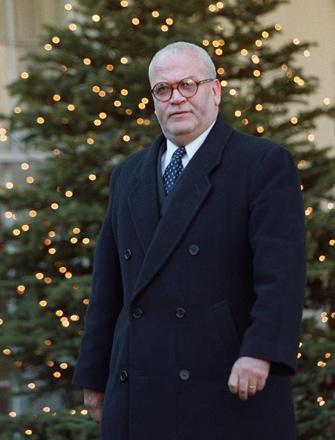You are here
Palestinians want world pressure on Israel after Netanyahu win
By Reuters - Mar 18,2015 - Last updated at Mar 18,2015

GAZA/RAMALLAH — Palestinian leaders on Wednesday called for international pressure on Israel and support for their unilateral moves towards statehood after Prime Minister Benjamin Netanyahu's election win.
Netanyahu's surprise victory, after pledging in the final days of the campaign that there would be no Palestinian state as long as he was in power, left Palestinians grim about prospects for a negotiated solution to a decades-old conflict.
"It is clear Israel has voted for burying the peace process, against the two-state choice and for the continuation of occupation and settlement," Saeb Erekat, chief Palestinian negotiator in talks with Israel that collapsed in April, told Voice of Palestine radio.
Seeking to shore up right-wing votes and saying that Islamist militants would move into any territory relinquished by Israel, Netanyahu also vowed to keep building settlements on occupied land Palestinians seek for a state.
Palestinian leaders said a fourth term for the Likud Party leader meant they must press forward with unilateral steps towards independence, including filing charges against Israel at the International Criminal Court (ICC).
"This makes it more necessary than ever to go to the international community, and to go to the ICC and escalate peaceful resistance and boycott against the occupation," Wasel Abu Youssef, a Palestine Liberation Organisation leader, told Reuters.
The Palestinians are due to become ICC members on April 1.
Erekat called in a statement on the international community to back Palestinian efforts "to internationalise our struggle for dignity and freedom through the International Criminal Court and through all other peaceful means".
In the West Bank city of Ramallah, taxi driver Zeyad Maaly said Palestinians should now rise up against Israel in the occupied territory.
"There will never be peace, not even in dreams," he said.
Ismail Ahmed, who drives a taxi in Hamas Islamist-run Gaza, where Israel and Palestinian groups fought a 50-day war last summer, said Palestinians should now put aside their differences and join in a common front against Israel.
"This is the only way we can make them recognise us," Ahmed said.
Netanyahu's stand against a Palestinian state had already threatened to strain ties with the United States and Europe.
The parliaments of several European countries, including Britain and France, have called on their governments to recognise an independent state of Palestine in the past year, reflecting exasperation at continued settlement building on occupied land. Sweden formally recognised Palestine in October.
Netanyahu, who in 2009 had endorsed the two-state solution, seemed on course to form a coalition government leaning further to the right than his outgoing Cabinet, which had included two centrist parties and engaged in the US-brokered peace talks.
‘Masquerade over’
In his new coalition, Netanyahu is expected to include his natural allies, religious and far-right parties, as well as one centrist party which campaigned on internal social-economic issues rather than on matters of war and peace.
Yariv Oppenheimer, head of the Israeli anti-settlement group Peace Now, said he was concerned that as head of rightist-dominated government, Netanyahu would move forward more easily towards expanding settlements in the occupied West Bank and East Jerusalem, enclaves many countries view as illegal.
"Netanyahu's masquerade is over. Everything's clear now, we're talking about a man who has sworn allegiance to the right, not about a centrist," Oppenheimer said.
Adding to Palestinian frustration is Israel's January decision to withhold $127 million tax revenues it collects on behalf of the Palestinian Authority, a retaliatory step after the Palestinians moved to join the ICC.
Though Israeli officials have indicated no imminent change, Gaza-based political analyst Hani Habeeb said Netanyahu may unfreeze the funds, which cover around two-thirds of the Palestinian budget, now that the election is over.
"I do not rule out Netanyahu releasing the PA tax revenues to improve his [international] image," Habeeb said. "He used it as a card during the election campaign and now he won."
Erekat suggested the Palestinians may press on with their pledge this month to suspend security coordination with Israel, a move that could have an immediate impact on stability in the West Bank.
But Nabil Abu Rdainah, spokesman for President Mahmoud Abbas, did not close the door completely on negotiations with Israel.
"We are not bothered by who is head of government in Israel, what we want from the Israeli government is to recognise the two-state solution and that East Jerusalem be the capital of the state of Palestine," he said.
Related Articles
OCCUPIED JERUSALEM — Israel's government on Sunday approved some $18 million in additional financing for West Bank settlements, calling it a
An Israeli plan to build more than 1,000 new housing units for settlers in occupied East Jerusalem is likely to cause an "explosion" of violence, a senior Palestinian official warned Monday.
RAMALLAH, Palestinian Territories — Saeb Erekat, who died on Tuesday at the age of 65, weeks after being hospitalised with COVID-19, was the


















